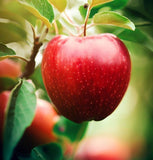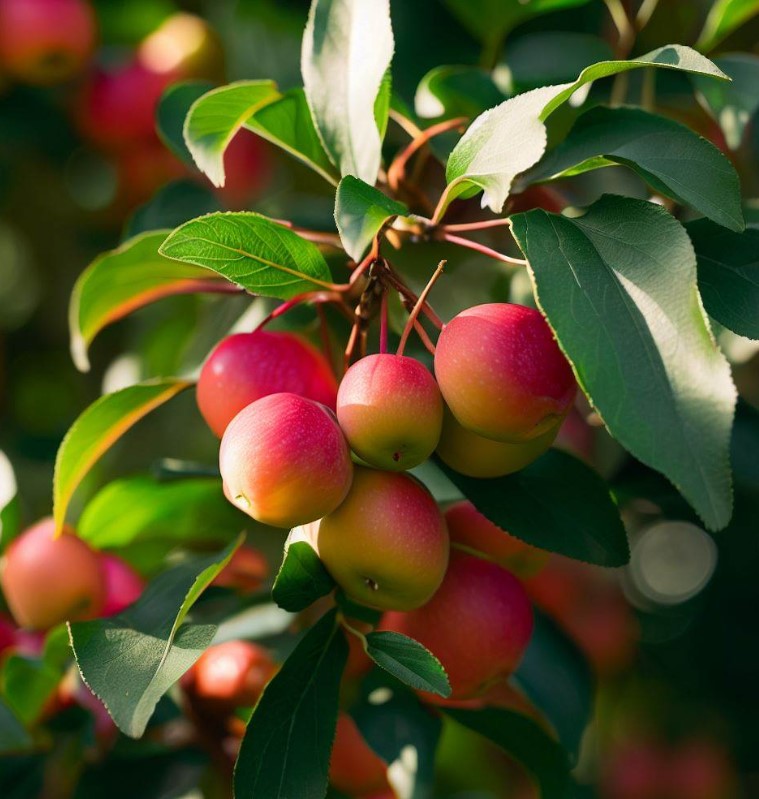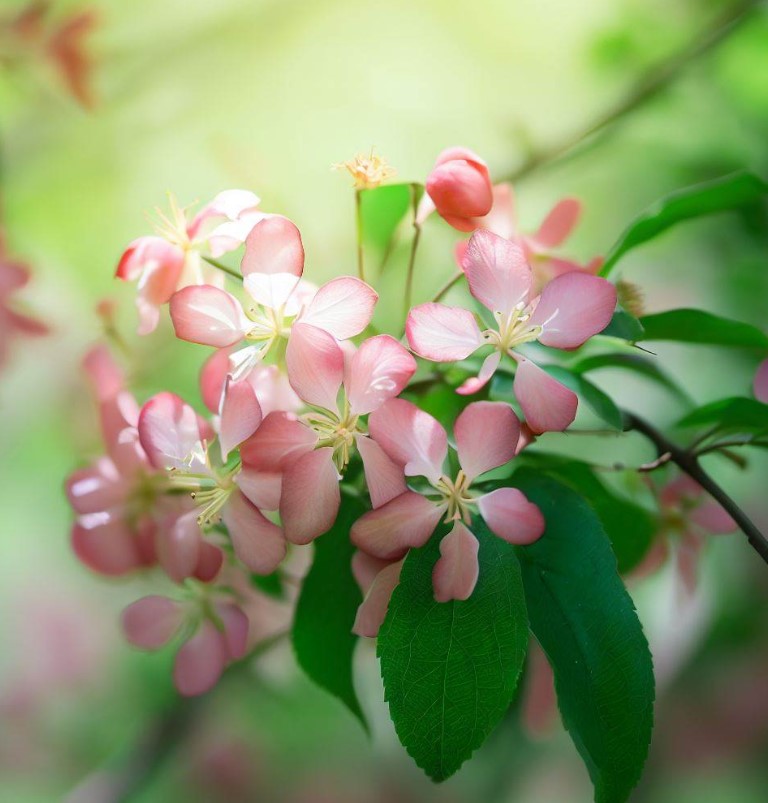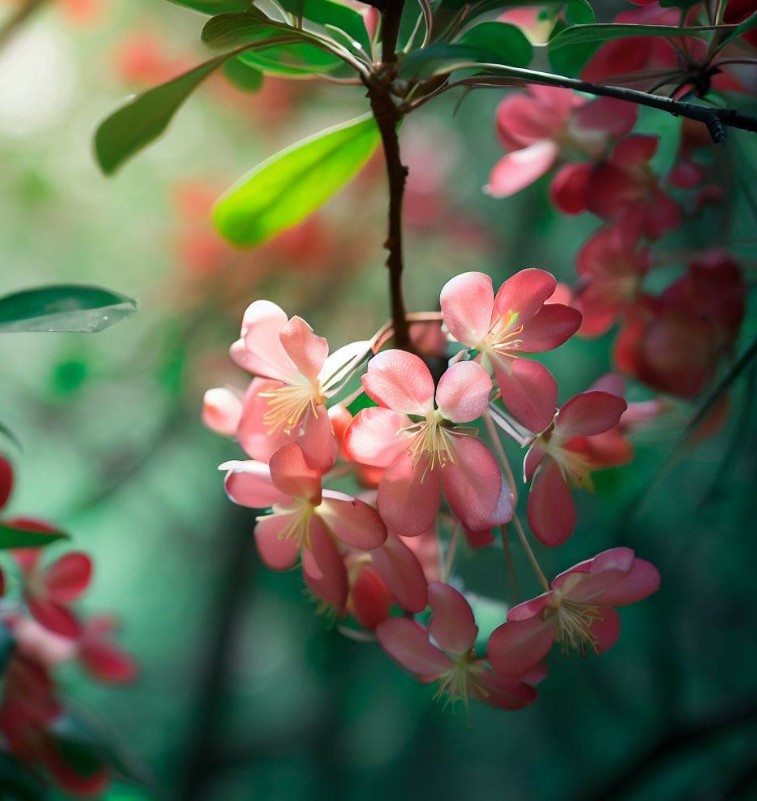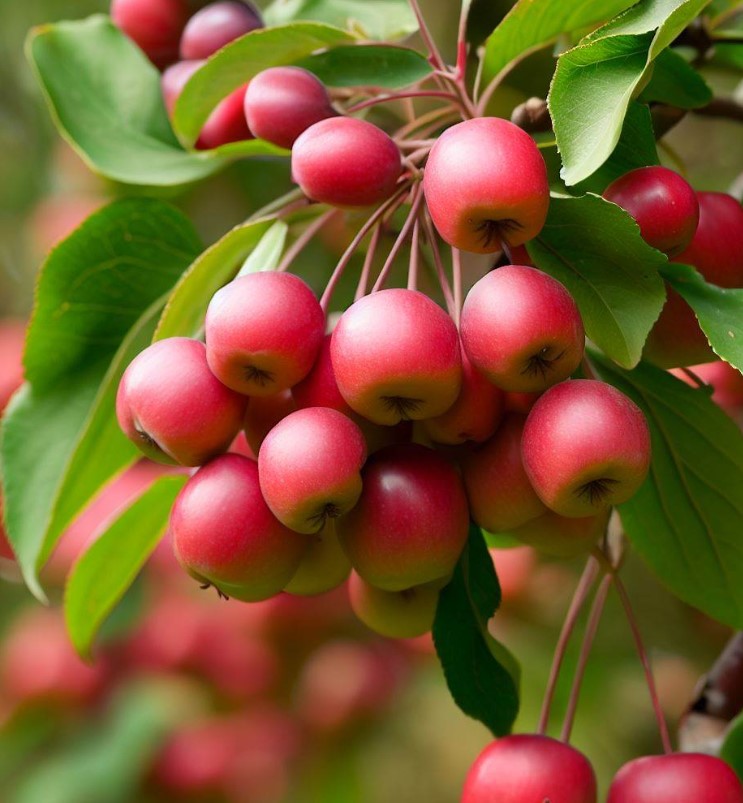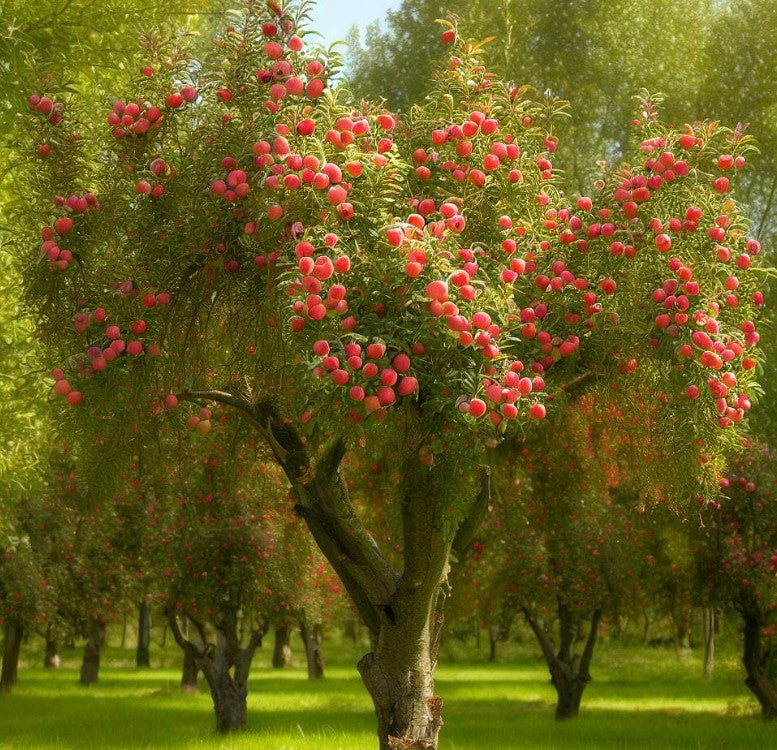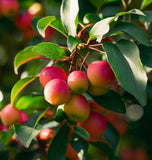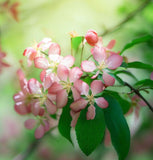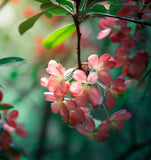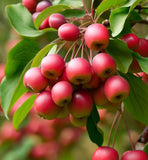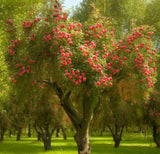Malus sieversii (Shakar Crabapple, Shakar Crab Apple, Wild Apple)
Malus sieversii (Shakar Crabapple, Shakar Crab Apple, Wild Apple), commonly known as the wild apple or the ancestor of the domesticated apple (Malus domestica), is a species of apple tree native to Central Asia. It belongs to the Rosaceae family and is considered one of the primary ancestors of the modern cultivated apple varieties.
Habitat: Malus sieversii is found in the wild in the mountainous regions of Kazakhstan, Kyrgyzstan, Tajikistan, and Xinjiang province in China. It thrives in diverse habitats ranging from forested slopes to rocky areas at higher elevations.
Appearance: This species typically grows as a deciduous tree, reaching heights of up to 10 meters (around 33 feet). It has a broad, spreading canopy with ovate to elliptical leaves that are serrated along the edges. The leaves are usually 5-12 cm (2-4.7 inches) long.
Flowers: In spring, the tree produces fragrant white to pale pink flowers that are about 2.5 cm (1 inch) in diameter. The blossoms attract pollinators such as bees and butterflies.
Fruits: The fruits of Malus sieversii are small, usually measuring around 1.5 to 2.5 cm (0.6 to 1 inch) in diameter. They are typically greenish or yellow-green, sometimes with a red blush. The wild apples have a complex flavor profile, combining sweetness with tartness and varying levels of astringency. Unlike the commercially cultivated apples, wild apples are often more diverse in taste and appearance.
Importance: Malus sieversii is of significant botanical and historical importance as it is believed to be one of the primary ancestors of the domesticated apple (Malus domestica). The process of apple domestication is thought to have occurred thousands of years ago when early human populations collected and cultivated wild apple seeds from the wild, leading to the development of the many apple varieties we have today.
Conservation status: Malus sieversii faces some threats to its natural habitat due to land-use changes, deforestation, and overgrazing. As a result, it is considered vulnerable to extinction. Conservation efforts are in place to protect and preserve wild apple populations, not only for their ecological significance but also for their potential value in breeding new apple cultivars with improved traits.
Overall, Malus sieversii is a fascinating species, offering valuable insights into the origins and evolution of one of the world's most popular fruits, the apple.
Botanical Name : Malus sieversii
Common Name : Shakar Crabapple, Shakar Crab Apple, Wild Apple
Height : 30-40 ft
Spread : 25 ft
Germination Info : Seed requires 60-90 days cold moist stratification
Hardiness zone : 3-7
Average seed per ounce : Approx. 1000

